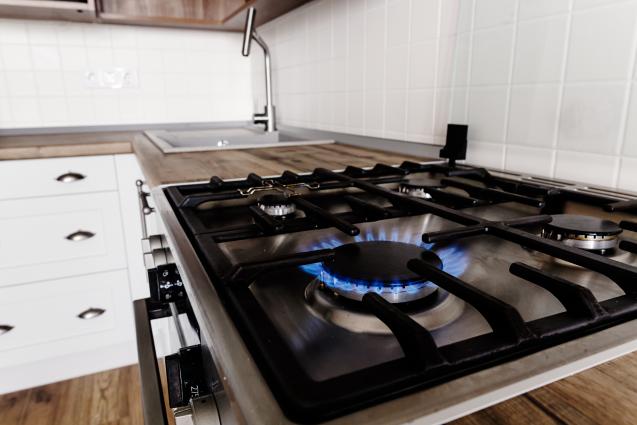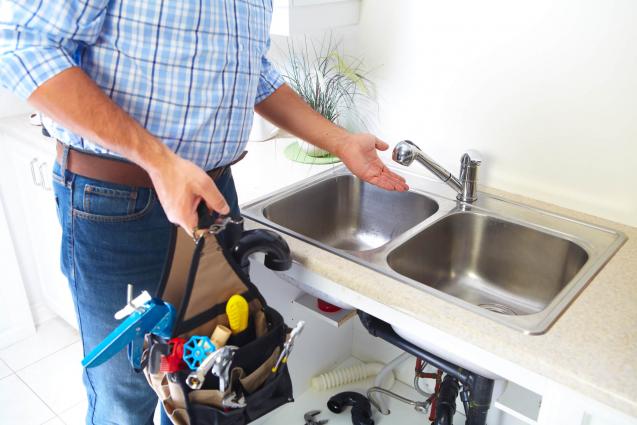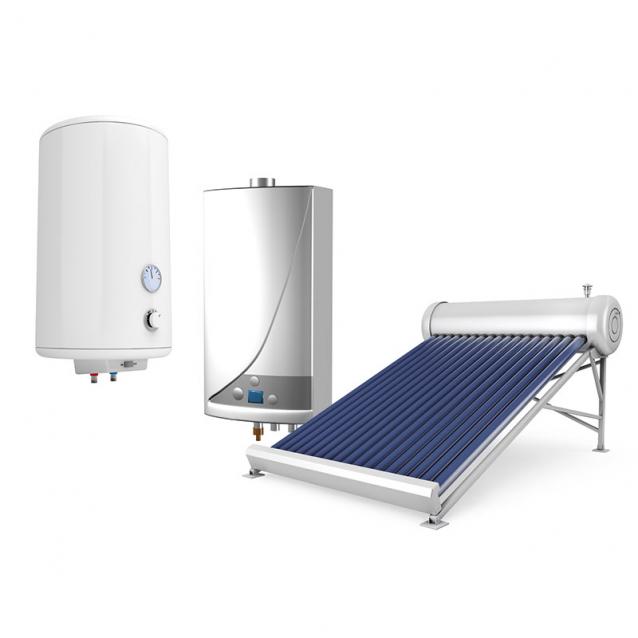
Effective Strategies to Substantially Cut Down on Your Summer Energy Costs
By Fluid Plumbing|February 25, 2024
Excessive energy expenditures during the blistering Australian summer have become a significant source of trepidation for many households. The extreme heat invites an unavoidable escalation in electricity costs as cooling appliances such as air conditioners, electric fans, and refrigerators are worked extensively to combat the amplifying temperatures. Additionally, extended daylight hours increase the overall electricity consumption, causing a significant rise in the energy costs. The predicament is further exacerbated when coupled with energy wastage from inefficient appliances. This comprehensive article seeks to provide a detailed understanding of the various strategic actions and proactive energy-conserving practices that could drastically aid in reducing these skyrocketing summer electricity bills, proving beneficial to both your finances and the environment.
Substantial Factors Prompting a Surge in Summer Electricity Costs
Energy consumption profiles tend to see considerable changes with the changing climate. During the peak summer months, the relentless heat drives us to continuously utilise cooling appliances. The heavy usage of these systems on a sustained basis leads to a significant expansion of the energy intake. Additionally, extended daylight hours engage us for longer durations, causing an unwelcome rise in electricity usage.
The problem is further intensified due to inefficient appliances and system management. Ageing appliances or those maintained inadequately tend to guzzle more power than necessary, thus raising electricity costs. These factors collectively contribute to an enormous demand for power during the summer and potentially influence energy providers to hike up electricity charges to manage the escalated strain on the grid.
Efficient Management of Air Conditioning Systems
The air conditioner serves as a vital respite in the horrific summer heat. However, without efficient management, these machines can become substantial contributors to escalating energy costs. Scheduled servicing of air conditioning units ensures optimal operation, the outcome of which can be a marked reduction in power consumption and flowingly, the electricity bill.
Incorporating programmed thermostats in the cooling systems also introduces a significant cost-savings opportunity. Having temperature controls set to optimal levels when you are at home, and slightly elevated when the house is uninhabited, can facilitate substantial savings.
The benefits of auxiliary systems, like ceiling fans, working alongside air conditioner units cannot be overstated. Ceiling fans promote even distribution of cooled air around the house, reducing the strain on air conditioners to cool larger areas, and consequently decreasing their energy consumption.
Improving home insulation standards can potentially lead to longer retention of cooled air, reducing the need for incessant air conditioning usage. Insulation materials and techniques can vary drastically, and it would be beneficial to consult a professional to explore the option most suited for your needs and budget.
Leveraging Natural Light for Energy Conservation
The extended sunshine hours during summer present an excellent opportunity to leverage natural light to the maximum. Minimising the usage of artificial light sources during daylight hours results in an immediate, noticeable reduction in electricity consumption. With smart, energy-efficient window installations such as blinds, shutters, or heavy drapes, we can strike a balance between desirable sunlight and insulating home interiors against the summer heat.
Small but impactful actions like switching off unnecessary light sources during daylight hours, or transitioning to energy-efficient options like LED lighting, can greatly impact energy costs. Although LED lights are typically more expensive upfront, they consume significantly less energy than conventional lighting options, making them a worthy long-term investment.
Incorporating Energy-Efficient Appliances
Energy-efficient appliances, though somewhat burdensome on the wallet at the time of purchase due to their higher upfront cost, are commendable investments from a long-term perspective. These appliances are characterised by a commendable Energy Star rating, signifying lower power consumption than their non-rated counterparts. The efficient power utilisation by these rated appliances manifests as reduced electricity costs, proving to be highly cost-effective over a more extended period.
Furthermore, energy-efficient appliances alleviate the stress endured by power supply grids during peak hours, advocating a more sustainable power consumption ethos.
Implementing Conscious Energy-Saving Habits
Inculcating conscious power consumption practices can prove substantially essential in reducing electricity bills. Simple modifications in everyday habits can manifest as a significant reduction in energy usage and costs. Operating high-energy consuming appliances like dishwashers and washing machines during non-peak hours can lead to remarkable savings in energy costs.
Unplugging electronics and appliances when they are not in use helps to mitigate the problem of 'phantom' or standby power consumption. Regularly monitoring your electricity usage by utilising smart metering technology is a remarkable approach to identify peak-energy consuming devices and hours, strategically adjusting daily routines to control energy costs.
Conclusion
Strategic initiatives such as optimising the use of air conditioning, leveraging natural light, investing in energy-efficient appliances, and inculcating conscious energy-saving habits can substantially deflate summer electricity costs. These efficient practices not only prove beneficial pocket-wise but also facilitate a significant reduction in energy wastage and carbon emissions. Each conscientious step towards energy conservation contributes to a more sustainable and eco-friendly future. The essence of these practices is that they illustrate how small modifications in daily routines can culminate in substantial benefits.
Substantial Factors Prompting a Surge in Summer Electricity Costs
Energy consumption profiles tend to see considerable changes with the changing climate. During the peak summer months, the relentless heat drives us to continuously utilise cooling appliances. The heavy usage of these systems on a sustained basis leads to a significant expansion of the energy intake. Additionally, extended daylight hours engage us for longer durations, causing an unwelcome rise in electricity usage.
The problem is further intensified due to inefficient appliances and system management. Ageing appliances or those maintained inadequately tend to guzzle more power than necessary, thus raising electricity costs. These factors collectively contribute to an enormous demand for power during the summer and potentially influence energy providers to hike up electricity charges to manage the escalated strain on the grid.
Efficient Management of Air Conditioning Systems
The air conditioner serves as a vital respite in the horrific summer heat. However, without efficient management, these machines can become substantial contributors to escalating energy costs. Scheduled servicing of air conditioning units ensures optimal operation, the outcome of which can be a marked reduction in power consumption and flowingly, the electricity bill.
Incorporating programmed thermostats in the cooling systems also introduces a significant cost-savings opportunity. Having temperature controls set to optimal levels when you are at home, and slightly elevated when the house is uninhabited, can facilitate substantial savings.
The benefits of auxiliary systems, like ceiling fans, working alongside air conditioner units cannot be overstated. Ceiling fans promote even distribution of cooled air around the house, reducing the strain on air conditioners to cool larger areas, and consequently decreasing their energy consumption.
Improving home insulation standards can potentially lead to longer retention of cooled air, reducing the need for incessant air conditioning usage. Insulation materials and techniques can vary drastically, and it would be beneficial to consult a professional to explore the option most suited for your needs and budget.
Leveraging Natural Light for Energy Conservation
The extended sunshine hours during summer present an excellent opportunity to leverage natural light to the maximum. Minimising the usage of artificial light sources during daylight hours results in an immediate, noticeable reduction in electricity consumption. With smart, energy-efficient window installations such as blinds, shutters, or heavy drapes, we can strike a balance between desirable sunlight and insulating home interiors against the summer heat.
Small but impactful actions like switching off unnecessary light sources during daylight hours, or transitioning to energy-efficient options like LED lighting, can greatly impact energy costs. Although LED lights are typically more expensive upfront, they consume significantly less energy than conventional lighting options, making them a worthy long-term investment.
Incorporating Energy-Efficient Appliances
Energy-efficient appliances, though somewhat burdensome on the wallet at the time of purchase due to their higher upfront cost, are commendable investments from a long-term perspective. These appliances are characterised by a commendable Energy Star rating, signifying lower power consumption than their non-rated counterparts. The efficient power utilisation by these rated appliances manifests as reduced electricity costs, proving to be highly cost-effective over a more extended period.
Furthermore, energy-efficient appliances alleviate the stress endured by power supply grids during peak hours, advocating a more sustainable power consumption ethos.
Implementing Conscious Energy-Saving Habits
Inculcating conscious power consumption practices can prove substantially essential in reducing electricity bills. Simple modifications in everyday habits can manifest as a significant reduction in energy usage and costs. Operating high-energy consuming appliances like dishwashers and washing machines during non-peak hours can lead to remarkable savings in energy costs.
Unplugging electronics and appliances when they are not in use helps to mitigate the problem of 'phantom' or standby power consumption. Regularly monitoring your electricity usage by utilising smart metering technology is a remarkable approach to identify peak-energy consuming devices and hours, strategically adjusting daily routines to control energy costs.
Conclusion
Strategic initiatives such as optimising the use of air conditioning, leveraging natural light, investing in energy-efficient appliances, and inculcating conscious energy-saving habits can substantially deflate summer electricity costs. These efficient practices not only prove beneficial pocket-wise but also facilitate a significant reduction in energy wastage and carbon emissions. Each conscientious step towards energy conservation contributes to a more sustainable and eco-friendly future. The essence of these practices is that they illustrate how small modifications in daily routines can culminate in substantial benefits.



